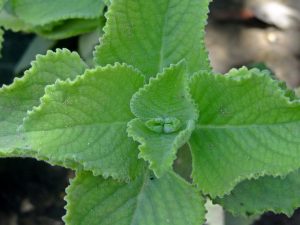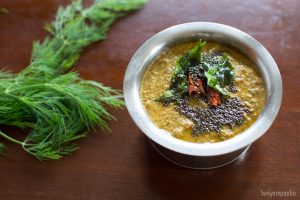Cuban Oregano (Doddapatre), also known as Spanish thyme, Indian borage, or Mexican mint, is a leafy herb that is commonly used in Caribbean and Southeast Asian cuisine. Here are some nutritional details and benefits of Cuban oregano:
Nutritional details:
- Cuban oregano is a good source of vitamins and minerals, including vitamin C, calcium, and iron.
- It also contains antioxidants, such as rosmarinic acid, which has been shown to have anti-inflammatory properties.
Health benefits:
- The antioxidants in Cuban oregano may help reduce inflammation in the body and protect against chronic diseases, such as heart disease and cancer.
- The herb may also have antimicrobial properties, which can help fight off harmful bacteria and viruses.
- Cuban oregano has traditionally been used in herbal medicine to treat digestive issues, such as bloating and constipation.
- Some studies suggest that Cuban oregano may have neuroprotective properties, which may help prevent or slow the progression of certain neurological conditions, such as Alzheimer’s disease.
Overall, incorporating Cuban oregano into your diet can provide numerous health benefits and add a unique, flavorful twist to your meals. However, it is important to note that Cuban oregano should be consumed in moderation, as excessive intake may cause stomach upset or other adverse effects.
Here are some of the names of Doddapatre in different languages:
- Hindi: Ajwain Patta or Sambrani Patta
- Kannada: Karpooravalli or Oma Kalu Ele
- Tamil: Karpooravalli or Omavalli
- Telugu: Omavalli or Vamu Aku
- Malayalam: Panikkoorkka or Karpooravalli
- Marathi: Patta Ajwain or Doddapatre
- Bengali: Patharchur or Pashanabheda
- Gujarati: Sambrani or Ajma Na Parno
These are some of the commonly used names of Doddapatre in different languages across India.



